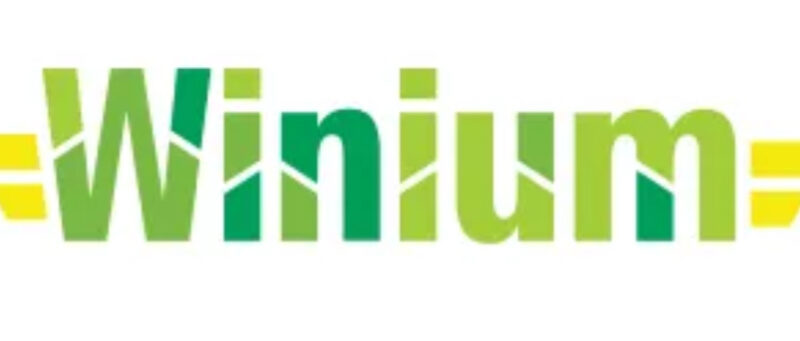Winium stands as a notable open-source Automation Framework, particularly for desktop-based applications. This framework, which integrates the Selenium library, offers an accessible path for testers familiar with Selenium WebDriver to engage with Windows applications. Its simplicity and compatibility with the Selenium ecosystem make it a preferred choice for professionals in the testing field.
Winium’s Extensive Language Support and Versatility
Winium’s remarkable versatility is largely attributed to its compatibility with numerous WebDriver-compatible programming languages. This range includes widely-used languages such as Python, Java, C, Ruby, PHP, and JavaScript, making Winium a universal tool for a broad spectrum of developers and testers. This compatibility ensures that professionals with varying backgrounds and preferences can seamlessly integrate Winium into their existing development environments. It bridges the gap between different programming communities, fostering a more inclusive and efficient approach to automation. Moreover, Winium’s provision as a free tool democratizes access to automation capabilities. This aspect is particularly beneficial for smaller teams or individual developers who may not have the budget for costly software licenses. By removing the financial barrier, Winium empowers a wider range of developers and testers to explore and implement automation in their projects.
The foundation of Winium in the Selenium Remote WebDriver framework is another cornerstone of its efficacy. This base enables it to efficiently handle Windows desktop application automation, a task that can be complex and resource-intensive. The fact that Winium extends this capability to mobile application automation broadens its application scope even further. It allows teams to maintain a consistent testing framework across both desktop and mobile platforms, simplifying the development process and ensuring a more unified approach to quality assurance.
In practice, Winium’s adaptability and wide-ranging support mean that it can cater to the automation needs of diverse client-based applications. Whether the project involves complex enterprise software or more straightforward desktop applications, Winium provides a robust and reliable solution. Its integration with various programming languages and platforms allows for a more streamlined and efficient workflow, which is crucial in today’s fast-paced software development landscape.
Winium’s extensive language support, cost-free availability, and strong foundation in the Selenium framework make it an invaluable tool in the realm of software testing and automation. Its ability to adapt to both desktop and mobile environments further enhances its utility, making it a go-to choice for professionals seeking a comprehensive and versatile automation solution.
Limitations of Winium: OS Compatibility
Despite its numerous advantages, Winium’s limitations become apparent in the context of operating system compatibility. Its primary constraint lies in the lack of support for Mac and Ubuntu-based operating systems. This limitation significantly narrows its applicability in environments where these systems are prevalent. In the diverse landscape of modern computing, where macOS and Linux-based systems like Ubuntu are widely used, especially among developers and IT professionals, this shortcoming cannot be overlooked.
This restriction implies that teams or individuals relying on Mac or Ubuntu environments are excluded from leveraging Winium for their automation needs. Consequently, this necessitates the search for alternative tools that can accommodate these operating systems, potentially leading to increased complexity and costs. The inability to operate across all major platforms restricts Winium’s utility in cross-platform development scenarios, where consistent testing across different systems is crucial.
Furthermore, this limitation also impacts the adoption of Winium in educational and open-source communities, where macOS and Ubuntu have significant user bases. The burgeoning trend towards more diverse operating system environments in educational institutions and among hobbyist programmers calls for tools that offer broader compatibility.
While Winium excels in Windows environments, its lack of support for Mac and Ubuntu can be a critical factor for organizations and developers working in a cross-platform context. This scenario underscores the importance of considering operating system compatibility in the development and selection of automation tools. In an ideal scenario, a tool like Winium would evolve to encompass a wider range of operating systems, thereby enhancing its appeal and utility in the broader software development and testing community.
Acquiring Winium
Ease of access is another advantage of Winium. The Winium Driver, essential for its operation, can be downloaded from a specified online location. The latest available version of Winium, as of September 30th, 2016, is 1.6.0. Users can incorporate the Winium Driver into their Java projects either by directly adding the extracted zip file or by including its dependency in the POM.xml file for Maven projects.
Winium Tutorial: Setting Up in Java
To effectively utilize Winium in Java, certain libraries must be imported, namely `org.openqa.selenium.winium.DesktopOptions` and `org.openqa.selenium.winium.WiniumDriver`. After setting up these libraries, users can initiate the Winium Driver and launch applications using specific code structures. The DesktopOptions library plays a crucial role in defining the application path for automation, while the initiation of the Winium Driver involves connecting to a local server at a specified port.
Launching Winium Server
There are two methods to start the Winium server: executing the .exe file via command line or using a batch file to run the Winium Driver .exe file.
Advantages Over Other Tools
Despite its less widespread popularity, Winium offers several advantages over other automation tools. Its open-source nature means there are no licensing costs, a significant financial benefit compared to other popular tools. Moreover, Winium supports a variety of testing frameworks and is easy to use and understand, thanks to its Selenium WebDriver API. It also allows for the convenient implementation of various automation frameworks and frontend testing libraries.
Conclusion: Winium in Practice
In the evolving landscape of automation, Winium presents itself as a highly viable solution for Windows-based automation tasks. Its ability to automate any Windows desktop application makes it a practical choice in various settings. For instance, at TestingGenez, our team has successfully applied Winium in case studies involving Notepad Windows applications, achieving both positive and negative testing scenarios with effective report generation.
